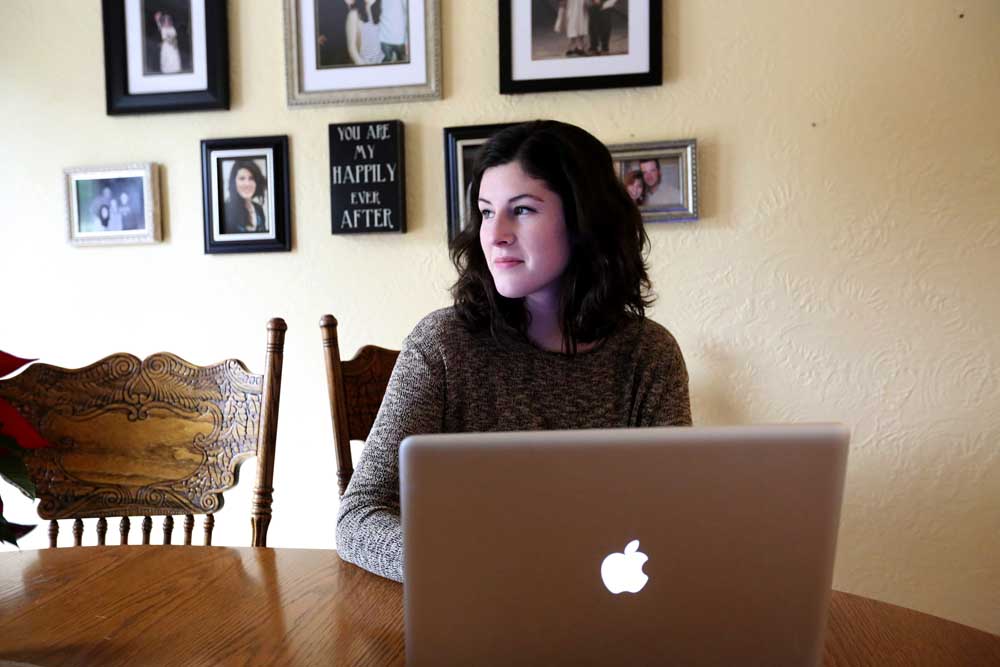Struggling student gets game plan
Published 12:00 am Wednesday, February 3, 2016

- Greg Gilbert / The Seattle Times via Tribune News Service Taylor Reyes, 25, is enrolled in a two-year graduate program at the University of Puget Sound to become a school counselor.
TACOMA, Wash. — Like many young adults, graduate student Taylor Reyes is pursuing her dreams of a career and a home while college debt piles up around her.
She’s worried whether she can earn enough money as a school counselor to buy a house and pay off student loans that could hit $50,000 by the time she graduates in May.
“I had felt so weighed down by these things,” the 25-year-old said.
But two volunteer financial planners showed Reyes that her ambitions can become reality. They also gave Reyes a plan for starting her career, managing her student loans and owning a home. Reyes could achieve all of those things by the time she’s 30.
Her story is also a case study of how young people can navigate the treacherous path from school to career and homeownership without getting swamped by debt.
Reyes knew she wanted to work with schoolchildren while earning a bachelor’s degree in speech-language pathology. Becoming a school counselor seemed like a perfect fit.
So she enrolled in a two-year graduate program. Reyes will graduate with a master’s degree in education and certification in counseling.
After graduation, she wants to stay in the Tacoma, Washington, area and find work as a counselor in a public-school district. The positions typically pay between $45,000 and $75,000 a year.
To help make ends meet until then, Reyes is living at home and working about 20 hours a week as a nanny. Her income is variable and ranges between $14,000 and $20,000 a year.
Unlike many of her peers, Reyes has amassed a small nest egg. She has $8,000 in three checking and savings accounts, as well as $1,000 in a Roth individual retirement account.
But Reyes is also dealing with the financial realities of being a student. She owes about $1,500 on her car, and the debt on her student loans is about $41,000. Reyes expects her college debt to climb $9,000 more this year.
Because of her student debt, Reyes has a negative net worth of about $34,000. Still, that hasn’t stopped her from dreaming about owning a home.
She loves watching home-renovation shows on television and routinely looks up residential listings in Tacoma. She hopes a $275,000 house is within grasp.
Does it all add up financially? Reyes didn’t know, so she reached out for help.
The Puget Sound Chapter of the Financial Planning Association voluntarily connected Reyes with two pro bono advisers at Blue Canoe Financial Planning in Seattle.
They were reassuring about Reyes’ financial condition.
“It’s generally good, given that she knows where she wants to go,” said Nancy Dienes, a registered financial adviser and Blue Canoe’s CEO. “She’s taken some risks, but it’s reasonable.”
Dienes and her colleague, financial planner Holly Davis, developed a road map for Reyes that has tips for other young adults in similar circumstances.
Despite Reyes’ limited income, the financial planners urged her to keep saving by putting $75 a month into an emergency reserve and $50 a month into her IRA. The IRA contribution may seem modest, but if the money is untouched, decades of compounding will increase its value.
They also advised her to look for a school-counseling job that would pay at least $45,000 a year, which is within the occupational pay range. At that income, homeownership is possible.
Some of their most important advice kicks in when Reyes begins working full time.
With a salary, Reyes will begin paying off her student loans, probably at a rate of about $125 a month. In 10 years, Davis discovered, Reyes may qualify for loan forgiveness if she keeps working in public schools.
Dienes and Davis also urged Reyes to increase her monthly contributions to an emergency reserve, stop contributing to her Roth IRA and sign up instead for her employer’s retirement plan.
The planners agreed with Reyes’ idea to keep living at home, and they advised her to use that time to save $1,000 a month toward the down payment on a house. They expect Reyes to accumulate a $40,000 down payment in about three years.
The two planners also counseled Reyes on how much of a house she could afford with an annual salary of $45,000.
Based on an annual salary of $45,000 and a down payment of $40,000, Reyes should be able to afford a $200,000 house. That was 27 percent less than what she was hoping for, but Reyes adjusted. Now she’s spending time looking for fixer-uppers.
“Each goal of mine is more doable than I thought,” Reyes said.






